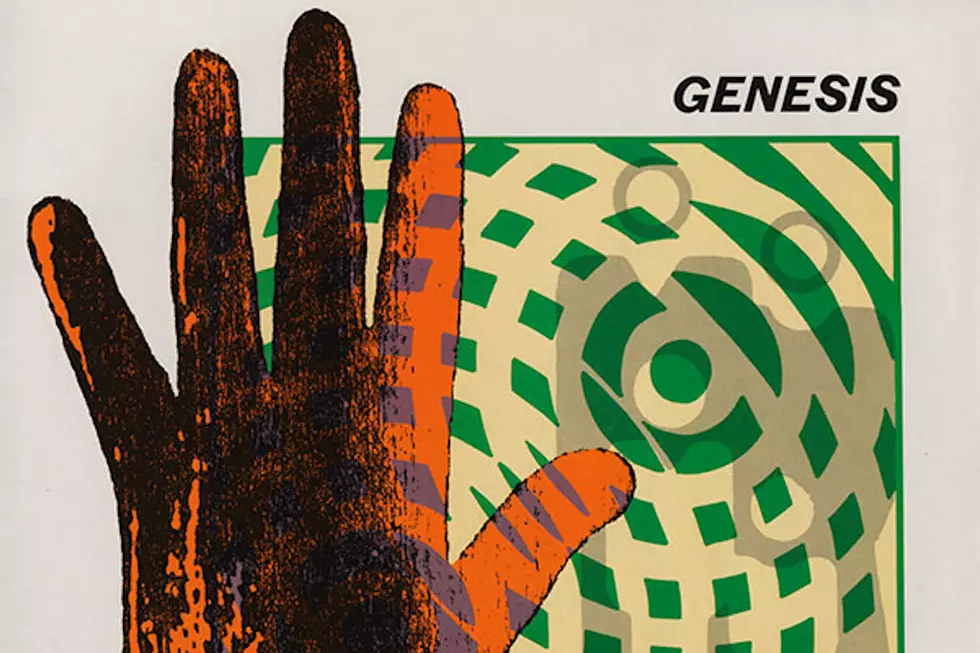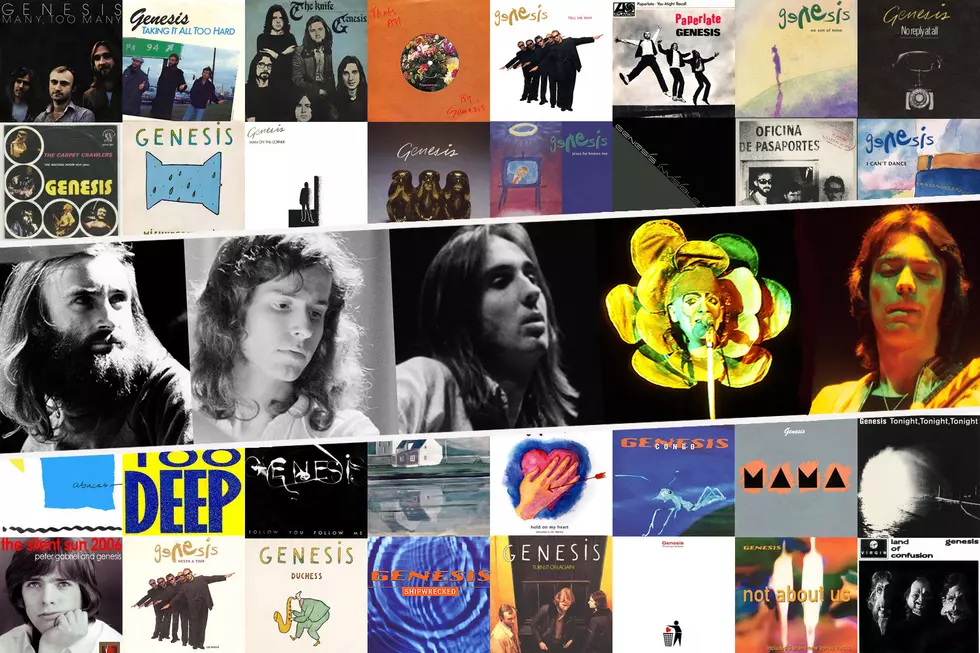
In Defense of Genesis’ ‘Invisible Touch’
"It's a bit sad that [people] say, 'This is the old Genesis, which I like' or 'the new Genesis,'" Mike Rutherford mused in 1986, while promoting the band's divisive LP from that year, Invisible Touch.
"As we are the first generation to be in a group for this number of years, you realize amongst ourselves that, unless we change a bit here and there and move around a bit, you become incredibly stale. So we are going to move and go though various changes. To be honest, to expect an audience to stay with you all the time — I don't expect it."
He has a point. Just think about how much the Beatles evolved in four years — the band responsible for Magical Mystery Tour's psychedelic experiments would be bored to tears with the Merseybeat of Please Please Me. But hardcore prog fans can be particularly allergic to change.
For many, Invisible Touch has become the musical equivalent of Fonzie's shark jump — the moment an inventive rock band changed course and lost its way.
I can't convince these fans that they're wrong. In a side-by-side matchup, yes, "Supper's Ready" is a more dynamic piece of music than "Anything She Does." But there's no reason both of these extremes — the knotty epics and the shiny pop tunes — can't coexist in a set list, a playlist or even an album track listing.
Watch Genesis' 'Invisible Touch' Video
Genesis were prog heroes and stadium-packing pop stars. It's a tricky balance few other bands have achieved, and recognizing that fact only underscores how versatile they've always been.
A lot of close-minded Genesis fans like to split the band's catalog conveniently in two: the supposed prog era with Peter Gabriel as frontman and the supposed pop era with Phil Collins behind the mic. They know this distinction is a mirage.
In fact, before they embraced synthesizers and 9/8 time signatures, the original Genesis aspired to craft hits as behind-the-scenes songwriters. Strong hooks and verse-chorus shapes have always been in their DNA — it's not like they flipped a switch once Gabriel left and became a more commercial band.
"We didn't appear to be that good at [writing hits]," keyboardist Tony Banks said in a DVD interview for the Invisible Touch reissue. "And then I think we sort of shown the way by groups at the time like King Crimson and Family and Fairport Convention — another way of approaching music.
"That's how we got into the progressive thing," Banks added. "We found we were able to do things in that area that no one else was doing, whereas in the pop area we weren't so original. By the time we got to [Invisible Touch], we felt we'd almost gone as far as we could in certain directions of ... deep progressive music with extended solos and all the rest of it. The idea of trying to craft songs a little bit more was quite appealing."
Listen to Genesis' 'Domino'
Genesis discovered that craft gradually and organically. Most early Genesis albums featured at least one compact, vocal-driven tune: the sweetly sung, Collins-fronted 12-string ballad "For Absent Friends" (Nursery Cryme), the gently trippy "I Know What I Like [In Your Wardrobe]" (Selling England by the Pound), the sex-centric sing-along "Counting Out Time" (The Lamb Lies Down on Broadway).
An equally important point: Genesis didn't suddenly swear off lengthy instrumentals and elaborate arrangements after promoting Collins to drummer-frontman in 1975. A Trick of the Tail, Wind & Wuthering and … And Then There Were Three ... all offer subtle refinements of their classic sound — and Collins was an essential part of that vibe, even showcasing his interest in jazz-fusion. (He notably played on most of the Brand X catalog.)
Going into the '80s, Genesis had clearly entered a new era. Their songs were brighter and more accessible, incorporating shades of new wave, adult contemporary and even (on very rare occasion, gulp) punk. (For the most obvious example of the latter, see the highly grating "Who Dunnit?" from 1981's Abacab.)
That chronology actually makes sense: For the ballad haters, there's a clear lineage from "The Carpet Crawlers" to "Your Own Special Way" to "Misunderstanding" to "In Too Deep." (Similarly, compare Banks' cross-handed piano technique on "The Lamb Lies Down on Broadway" and "No Reply at All.") You just have to read between — behind? — the lines a bit.
They also arrived at this sound democratically.
Watch Genesis' 'Tonight, Tonight, Tonight' Video
By 1983's Genesis, the trio lineup — Collins, Banks and Rutherford — wrote from blank-slate jam sessions, with each saving his prearranged material for respective solo projects. The argument that "Collins making Genesis a pop band" is factually inaccurate. He just happened to be an enormous star in the neon decade.
"A lot of the songs end up being organizations of those jams," Banks said in the same Invisible Touch promo interview. "Sometimes it ends up being quite a sort of long thing like 'Tonight Tonight Tonight,' where you've got lots of ideas on this one rhythm, or other songs just condense out of a jam, like 'Anything She Does.' The original jams might have lasted 20 minutes, but you start selecting the little bits out of it that you think are good, and it crystalizes into quite a short song."
Collins added: "It's not like we all want to write short songs. We like writing short songs, and we like writing things with more substance than that. You get a couple of instrumentals … a couple of longer tracks."
Invisible Touch is indeed more varied than critics give it credit for. "Tonight Tonight Tonight" and the two-part "Domino" marry massive choruses with extended art-rock atmospheres; "Land of Confusion" and the title track are streamlined radio staples; closing instrumental "The Brazilian," were it not for the slick synths and dated electronic drums, could have slotted in on Duke.
These days, Invisible Touch is often ranked toward the bottom of their discography: "On the dark day in Genesis history when this record was released, the band fully transitioned from art-rock glory to radio-ready piffle, replete with all the worst that ‘80s overproduction had to offer," one UCR critic later declared, placing Invisible Touch at No. 13 out of the band's 15 studio LPs.
That's fair enough — after all, in Genesis world, "worst" does not equal "bad." Naysayers: Just make sure you hate logically.
Phil Collins and Peter Gabriel Albums Ranked
How We Ranked Every Genesis Song




